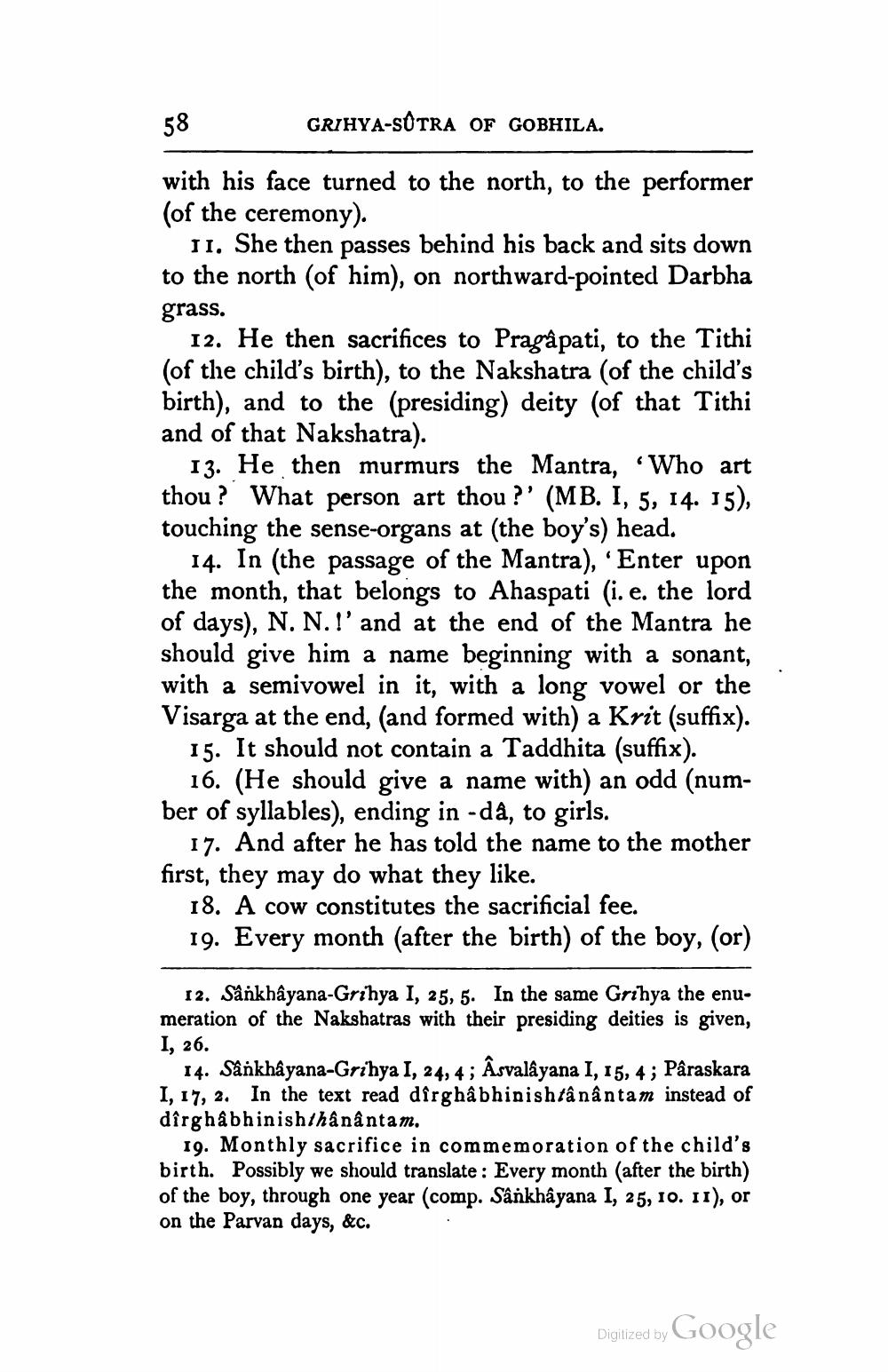________________
58
GRIHYA-SUTRA OF GOBHILA.
with his face turned to the north, to the performer (of the ceremony).
11. She then passes behind his back and sits down to the north (of him), on northward-pointed Darbha grass.
12. He then sacrifices to Pragâpati, to the Tithi (of the child's birth), to the Nakshatra (of the child's birth), and to the (presiding) deity (of that Tithi and of that Nakshatra).
13. He then murmurs the Mantra, Who art thou? What person art thou ?' (MB. I, 5, 14. 15), touching the sense-organs at (the boy's) head.
14. In (the passage of the Mantra), 'Enter upon the month, that belongs to Ahaspati (i.e. the lord of days), N. N.!' and at the end of the Mantra he should give him a name beginning with a sonant, with a semivowel in it, with a long vowel or the Visarga at the end, (and formed with) a Krit (suffix).
15. It should not contain a Taddhita (suffix).
16. (He should give a name with) an odd (number of syllables), ending in - då, to girls.
17. And after he has told the name to the mother first, they may do what they like.
18. A cow constitutes the sacrificial fee. 19. Every month (after the birth) of the boy, (or)
12. Sânkhayana-Grihya I, 25, 5. In the same Grihya the enumeration of the Nakshatras with their presiding deities is given, I, 26.
14. Sänkhâyana-Gríhya I, 24, 4; Âsvalâyana I, 15, 4; Pâraskara I, 17, 2. In the text read dîrghâbhinish tânântam instead of dîrghabhinishthânântam,
19. Monthly sacrifice in commemoration of the child's birth. Possibly we should translate : Every month after the birth) of the boy, through one year (comp. Sânkhâyana I, 25, 10. 11), or on the Parvan days, &c.
Digilized by Google




